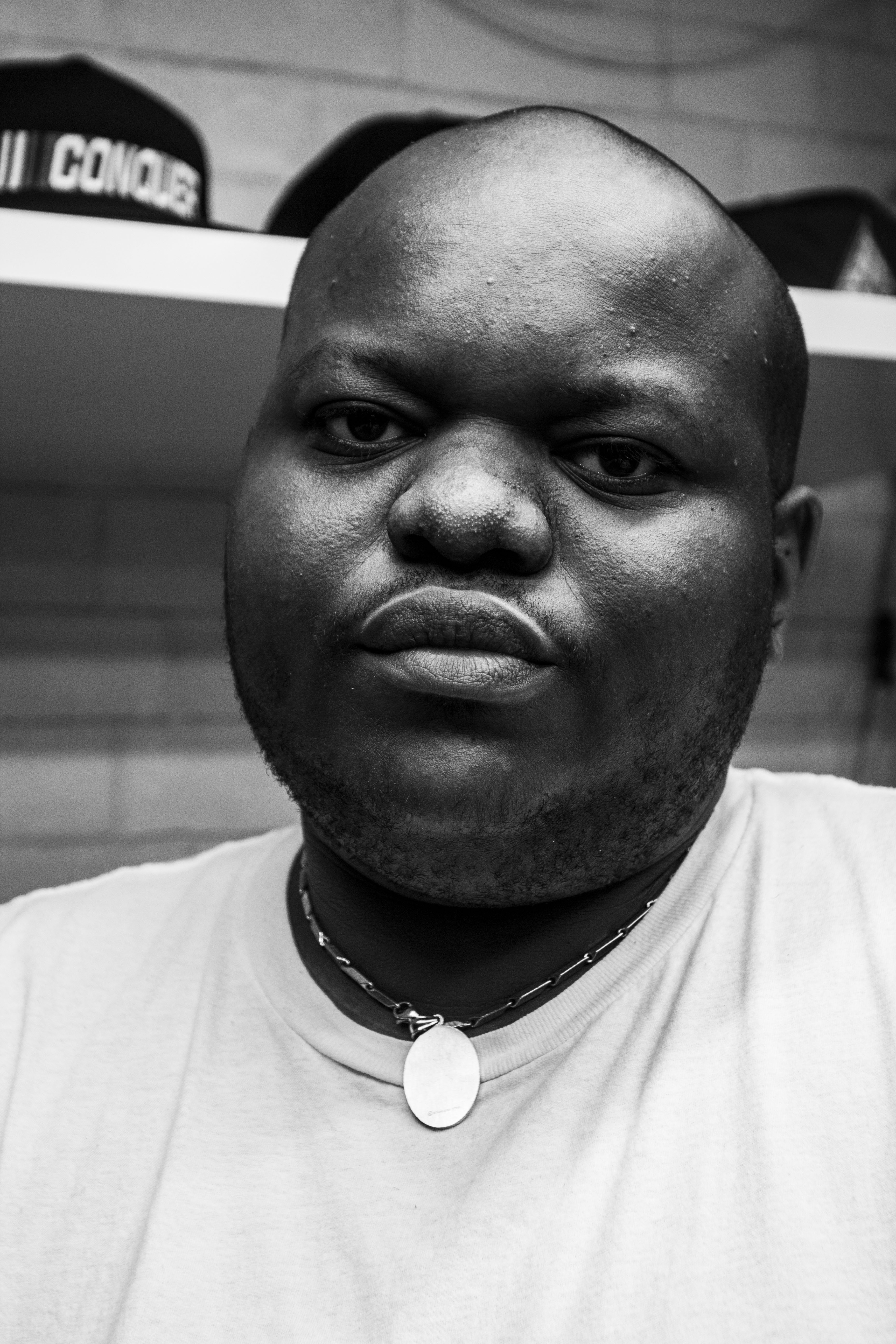[The Uncommon Creatives] Interview with Brian Seymore
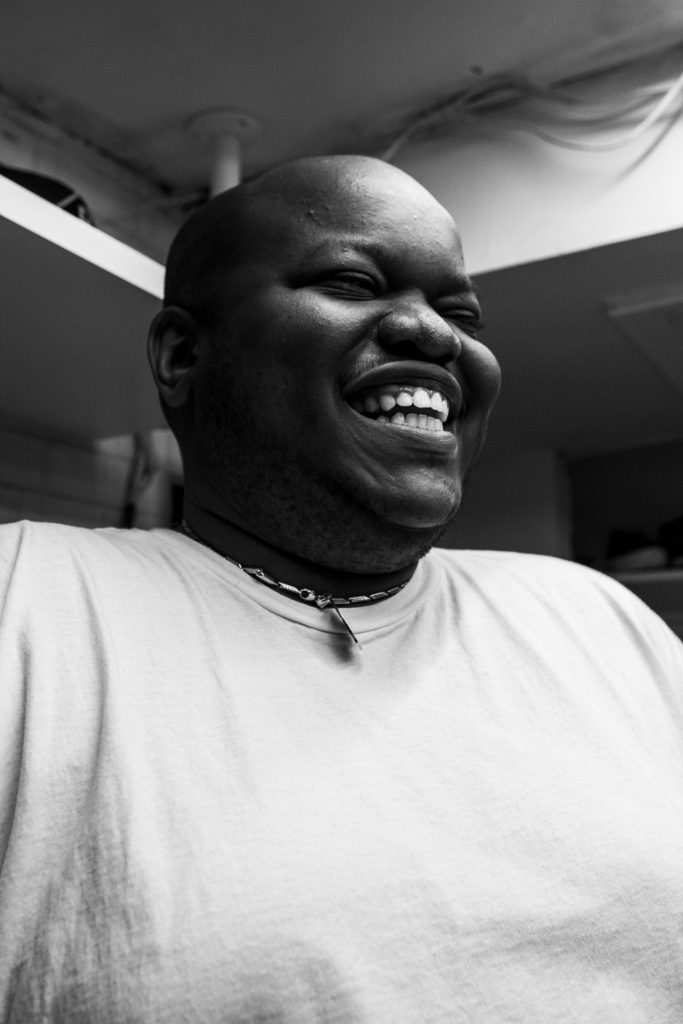
I met this mastermind at an event that he invited me to many months ago. Ever since then he has always been able to offer valuable perspective when I and others need it. Brian may be in his early twenties, but his mind is far beyond his years. Anytime that we meet up, aside the crude jokes we may exchange, we also discuss ideas/goals for ourselves and our businesses. Brian is not a believer in giving up as he is able to seek out every positive outcome to a situation before you can even get one pessimistic thought out of your mouth. This interview may have been one that I can relate to most as Brian discusses instances that mirror my creative experience.
Read our interview below.
Interview with Brian Seymore and Shae McCoy
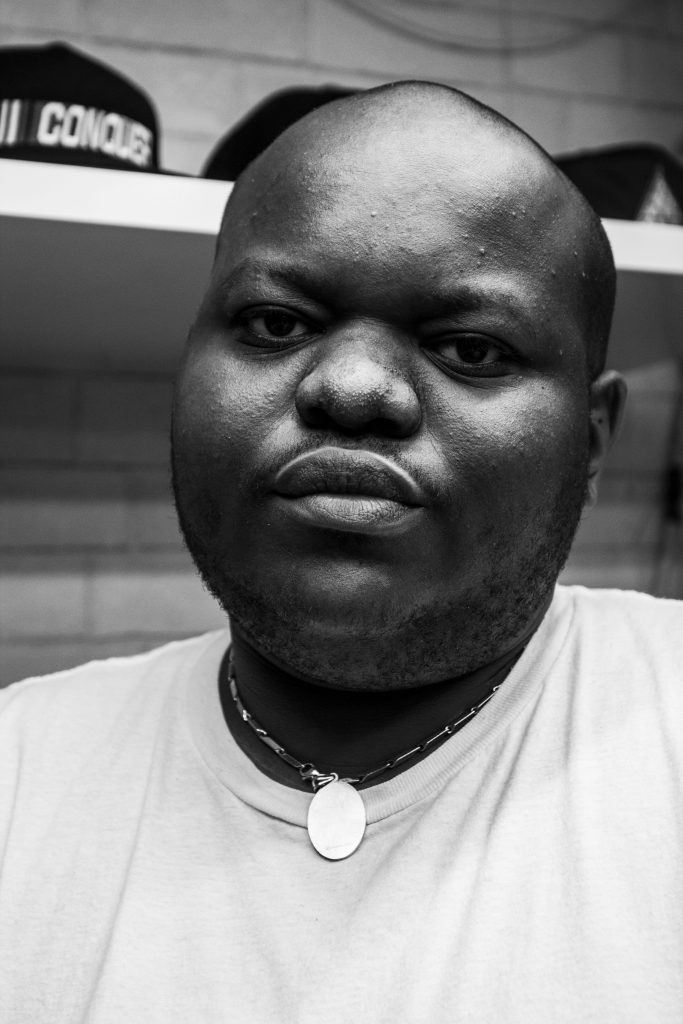
SM: We’re going start with your name, age, where you’re from.
BS: My name is Brian Seymore. I am 23 years old and I am from West Baltimore, Maryland
SM: What is it that you do creatively?
BS: Damn, that’s a lot. * laughs So, I would say the gist of what I do creatively would be identity design, cultural architecture and curation through live events, and also creative business development, as well as painting.
SM: Which one of those many things is something that you’re deeply passionate about??
BS: I’m passionate about all those things but I would say painting would probably be the deepest rooted. I’ve had my own painting practice for about five years, so through anything I’ve been doing that’s always been always a consistent and main focus.
SM: How did you discover that this was something you were passionate about, what was the IT moment??
BS: I would say when I was in 8th grade. I had a really unique opportunity to go to a black owned and operated private school in Baltimore County. It was started and run by a black woman, about 90% of the teachers were black women and the focus of the school was Christian Education. I found that the only way for me to actually get out of that school was to get into a Magnet program. So, I had always been drawing, but I found that painting was going to be my way out and I kind of just started. The first painting I ever made was with my foot and some acrylic paints from Michael’s, and I still have it hanging in my studio today.
SM: So can you tell us a little more about that foot painting? Because I’m kind of interested to know how that occurred and what made you think to do it with your feet?
BS: Through a lot of my work and my own personal ideology, I’ve always been someone that wants to think outside the parameters first. So if my initial introduction into painting is everyone using their hands and brush, I kind of wanted to simplify that a little bit. And the simplest way I could think about that was when you were like a child and they made you hand print paintings. Or like when you’re born, they take your foot and put it in an inkpad and stamp it so it was kind of like me being reborn and me now starting this new life.
SM: Wow! That was a great explanation! What are some hardships that you’ve experienced in your creative field?
BS: I would say some of my biggest ones, there’s so many hardships I feel like I fail every day. I think some of my biggest hurdles were my own identity, and then trying to work within a community that wasn’t accepting of who I was. The Magnet school I ended up going to was in Dundalk, which is a super white community almost entirely below the poverty line. That was my first time ever seeing poor white people in my entire life and a lot of those people equated their economic status as them relating to the plight of black people. And me not fully understanding what Blackness meant, not really understanding my place in Blackness and what it like meant towards my identity it, kind of swallowed me whole for a really long time. And I really struggled with it, up until about two years ago with exactly what being Black was and what it meant. So that was of the first struggles, I would say the second was when I really tried to get into the creative industry in Baltimore and I found that a lot of Black people just wouldn’t work with me. Didn’t like me, wouldn’t work with me, I didn’t meet their standard of what Blackness was so I was instantly rejected. And that really hurt because I kind of always really wanted to work with all of these people, but time has kind of not only healed all wounds but also opened me up to why those interactions probably didn’t happen. And a lot of those people don’t really matter anymore so, it’s kind of shown that maybe I wasn’t’ supposed to work with those people. But it definitely had a great impact on who I was and what i was trying to do.
SM: So, how do you help others with your craft?
BS: In a lot of ways. A lot of it is just answering questions, but I feel the best way I help others with my craft is holding people accountable. Because a lot of times people, especially Black people, are often left to their own devices and feel like its okay to just skate off of being a ’Black business’ and in order for all of us to grow we have to constantly be keeping a balance of what’s going on. And watching out for those wolves in sheep’s clothing who aim to kind of tear the community down from within.
SM:Good answer! What makes you stand out in your field? Like what is like the unique thing that people know you for?
BS: A lot of it is my work ethic, and I would say just being me, like, I’m me 24/7, every single setting. I really have come to terms with who I am and what I like and that sort of comfortability, it just kind of makes me feel accepted wherever I am even if outwardly I’m not accepted in that space. I can walk into any room and feel comfortable because I know who I am, I know what I want, I know what I need, and I know what I won’t accept. But again, it’s my work ethic, any sort of situation I’m in where I’m compared to my contemporaries, I always want it more, and it shows. And I’ll do what I have to, to achieve my dreams and make my goals happen.
SM: If you could be doing anything else, other than what you’re doing now what would it be? It doesn’t have to be creative; it can be anything!
BS: If I wasn’t doing what I was doing now I probably would have left the country and moved somewhere a little bit slower. I found a really solid passion for Italian cooking recently over the past I would say, two years…So I would move somewhere like Florence and cook. Nothing like Michelin star or super upscale but I would love to be a cook at like a mom & pop bakery in Florence and kind of just paint to my own happiness.
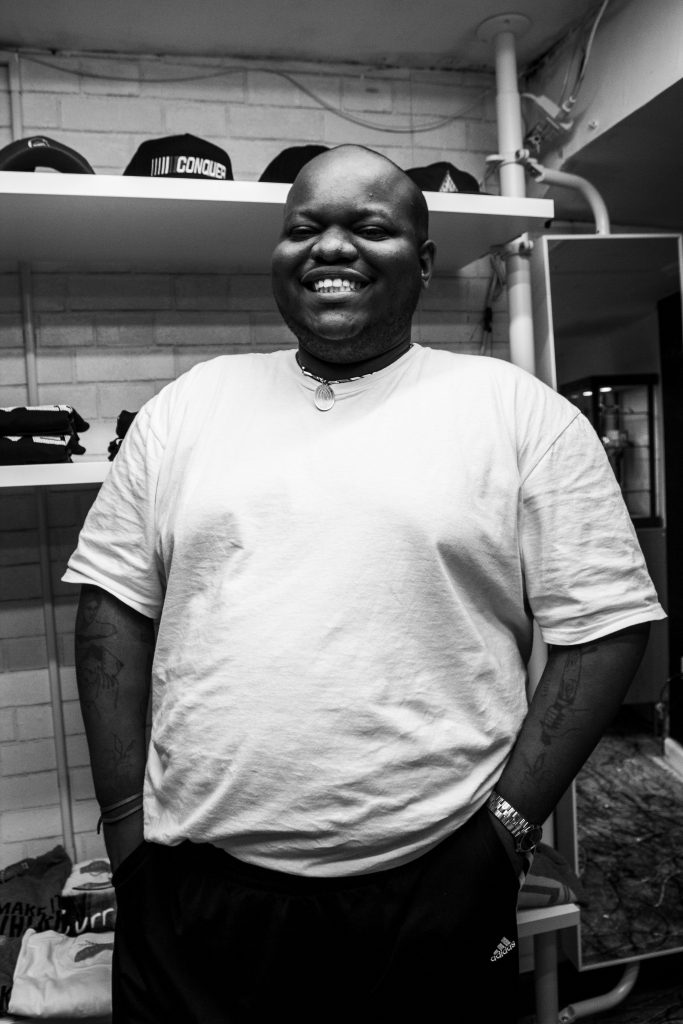
SM: Who or what are your creative inspirations?
BS:All of my creative inspirations are black women, I owe everything that I am today to all the amazing Black women who have come in and out of my life. But I would say creatively, it would probably have to be my mom, and not even because she’s an artist but just seeing how the struggle of a single mother in America who’s trying her best to be totally present for three growing and developing individuals while also working through past trauma, navigating through systematic barriers, to growing and evolving in a workplace that really isn’t meant for her to succeed. And seeing how creative she had to be within making sure the lights stayed on, making sure there was always a place for us to be, making sure there was always someone to watch us, making sure we always had clean clothes. There was a lot of magic that I only ever saw the surface of because she was very proud and really did whatever she could, I feel like I learned a lot of my problem solving and critical thinking skills that I have and that people tout me for today I owe a lot of that to her because I had always wondered how these things happened and there was never really an answer, they kind of just happened.
SM: What is the most rewarding thing that has happened on your career so far?
BS: I would say the most rewarding thing, honestly is now being Creative Director of FRS, and being able to carry on the teachings from my mentor that really pushed and propelled me not only as a person but as a creative so, what I do today is because of C. Harvey. She taught me the difference between empowerment and engagement and understanding that the power was always within me. In that I really just needed to be engaged, I needed to understand the system and I needed to understand that the most important thing is always the maintenance and care of my soul and the upkeep of my spirit. So, I get to take those teachings and pass it on to others through what I’m doing at FRS and really providing opportunities for young entrepreneurs to not only grow and develop their businesses but also scale with real numbers. We’re taking a lot of these kids who probably otherwise wouldn’t have had these sorts of opportunities so soon and we’re putting thousands of dollars in their pocket, and no one is giving it to them, they’re working for it. So, getting to provide people with foundations to build their houses is probably my biggest achievement so far.
SM: What do you think you can do a better job at as a creative?
BS: As a creative, I feel like I can always do better with… taking risks. I feel like it’s in human nature to get comfortable, but I also feel that comfortability is the cousin to demise. So, just working on constantly putting myself in a position to take risks because those risks are what either gives you a lesson or success, and neither one of those is better than the other.
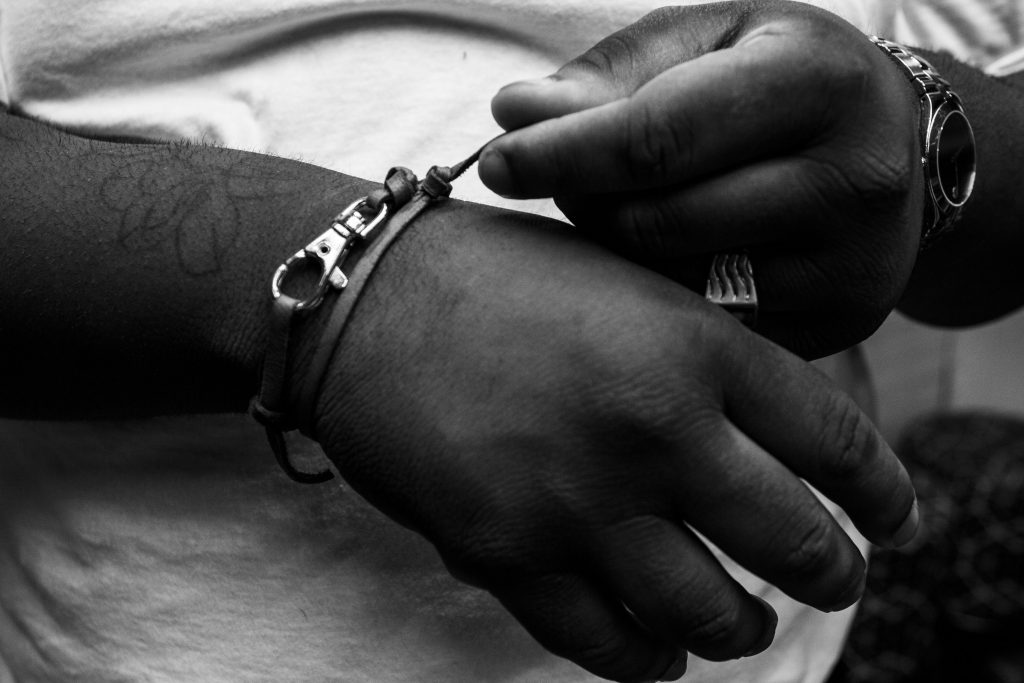
SM: What is a creative to YOU?
BS: A creative to me is someone that has an understanding of creative problem solving and critical decision making and uses those understandings no matter what they are, to then create tangible or ideological solutions.
SM: What do you see yourself doing in the next 5 years?
BS: I try not to look that far. I try to be super into my present and really kind of accepting and understanding that the future is something that I don’t even have the right do dictate. That’s something so above me that I couldn’t even try to start trying to figure out what it is. All I can say is, I’m here for the present and I’m understanding and accepting of the future whatever that future is.
SM: What are some upcoming things you have going on?
BS: A lot! I’m in the process of starting my next solo show, American Legend. I’m trying to go back to school. Just trying to be a better person so..
SM: That’s a good answer *laughs* so you can tell everyone where they can find you, like on social media, websites, etc.
BS: I would say the best way to find me is in person. You know, come find me, say hi. I like coffee, I like tea, I also REALLY love champagne. As far as the digital space; Instagram: @BrianXSeymore you can support what I’m doing at https://www.brianseymoresupplygroup.com
SM: Thank you for coming!

